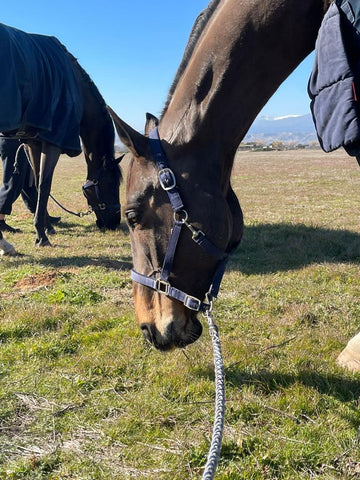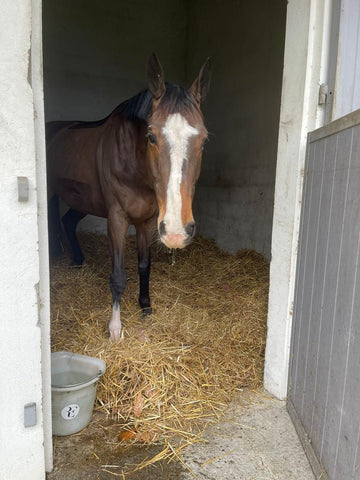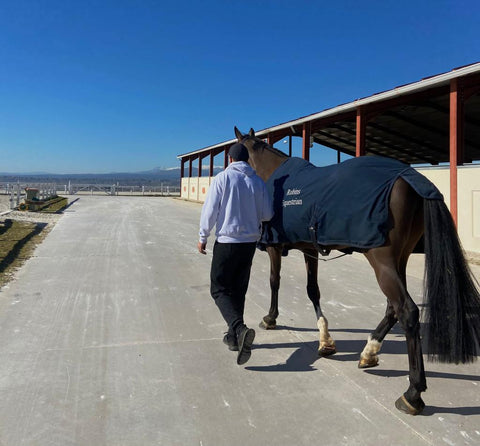Top tips for keeping your horse healthy when travelling!

Long distance travel can take its toll on horses and can increase their susceptibility to disease, with the respiratory system at the greatest risk. Here are a few tips to help keep your horse healthy on a long-distance journey:
- Plan and prepare! Make sure you have everything planned in advance down to the smallest detail, with back up plans just in case! This includes routes, stops/ breaks, equipment, food and water, first aid kits, paperwork (passports, insurance documents, Vet contact details along the route, travel documents etc). Make sure your transport (trailer/ lorry) is safe, legal and up to the journey too!

- Make sure your horse is fit and well and used to travelling before leaving.
- Water and Electrolytes. Stop and offer water regularly during the journey. Feed electrolytes as appropriate. Prior to starting the journey your horse should be well hydrated and have had ad lib. access to forage.

- Consider the weather and time of day of travel – hot weather and a traffic jams, make for an uncomfortable and prolonged journey for your horse and will increase the risk of problems such as heat stroke.
- Regular breaks and rest stops to allow the horse to put their head down, eat and drink. As a guideline stops should last 20 minutes for every 4 hours of travel, with a full nights rest after every 12 hours of travel.
- Ventilation and dust free environment in the horse’s airspace to help maintain respiratory health.
- Shipping Fever is a name for a respiratory infection caught whilst travelling. Having the head elevated, as may happen when tied up in the lorry, increases the risk of shipping fever as it compromises the normal drainage via the mucociliary escalator from the airways. A study published in 2016 looking at horses flying to Hong Kong found approximately 10% of horses were affected with shipping fever.
- Monitor the horse closely on arrival, including regular temperature checks. Symptoms to watch out for include fever, lethargy, cough, inappetence, nasal discharge, increased respiratory rate, stiffness or reluctance to move. If there are any concerns a Vet should be contacted.
- Give your horse time to rest and recover from a long journey. Papers have shown weight loss of 2.5 - 5% of their body weight can occur when travelling more than 12 hours. This weight loss is likely due to eating less during travel, dehydration and increased energy requirements associated with travelling. It may take 3 - 7 days to return to normal weight following a long journey.

 Skip to content
Skip to content

